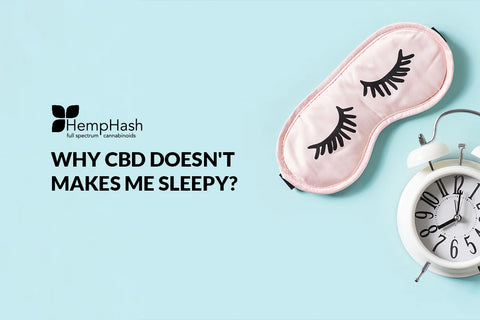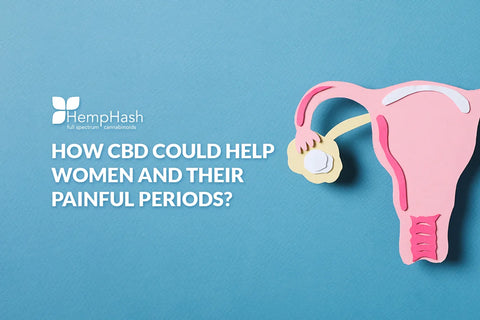The increasing popularity of CBD, a non-intoxicating and potentially therapeutic derivative of cannabis, has piqued the interest of many individuals trying to improve their overall well-being. Some users tout its calming effect as an ideal strategy for combating anxiety, stress, and sleep issues. However, those who try it are often left wondering, "Why doesn't CBD make me sleepy?" This article aims to clarify some misconceptions about CBD's effects on sleepiness and explain why it may not induce drowsiness for all individuals.
The Complexity of CBD's Effects on the Endocannabinoid System
To understand why CBD might not lead to sedation, one must first grasp how it interacts with the body's endocannabinoid system (ECS). The ECS is responsible for maintaining homeostasis in various physiological processes, including mood, appetite, and sleep. It does this through a collection of receptors known as CB1 and CB2 that are primarily found in the brain and immune cells.
Unlike THC (another cannabinoid found in cannabis), CBD exhibits a weak affinity for these receptors. Instead, it acts as an allosteric modulator, altering the shape of these receptors – leading to decreased stimulation or reduced activity. In doing so, CBD indirectly affects the ECS by influencing the capacity of other cannabinoids or endogenous ligands to bind to and stimulate CB1 and CB2 receptors. Consequently, CBD’s interaction with the ECS is subtle and complex, which could cause varying and even opposing effects in different individuals.

How CBD May Affect Both Relaxation and Stimulation?
In general, people tend to associate CBD with relaxation due to its prominence in addressing anxiety and stress-related issues. Some studies have suggested that CBD’s anxiolytic (anti-anxiety) effects could lend themselves towards inducing a sense of relaxation among users. Such relaxation might contribute to improving sleep quality, particularly for those who struggle with anxiety or stress.
What are the Potential Stimulating Effects?
Ironically, some reports suggest that small doses of CBD might boost alertness rather than causing drowsiness. For instance, one study found that consuming a a lower dose of CBD oil or CBD in general led to increased wakefulness during the night, without negative impacts on subsequent daytime sleepiness.
This stimulation may be attributed to the fact that CBD could act as an antagonist at CB1 receptors, thereby suppressing the sedating effects of certain endocannabinoids. Additionally, CBD may increase dopamine levels in the brain, which play a crucial role in regulating attention and focus. These factors combined might explain why it does not induce sleepiness for all individuals.
Why CBD May Affect People Differently?
Like many other substances, each person's response to CBD depends on their unique physiology, metabolism, and genetics. Therefore, several individual-specific factors could potentially influence the way CBD affects your sleep patterns.
How to choose the good CBD dosage?
Many experts suggest that a higher dosage of CBD is required to induce sedation, while smaller doses are more likely to promote alertness. Based on these speculations, varying dosages could significantly impact the discrepancies observed in a cohort. Paying close attention to product labels and starting with a low dosage can help you discover the ideal amount suited to your needs.
Body Chemistry and Genetics
Each person has a unique ECS influenced by their genes, leading to variable responses to different cannabinoids. Furthermore, differences in metabolic rates might affect how quickly CBD is broken down and excreted from the body, also contributing to variance in its impact on sleepiness.
Quality of CBD Oil and CBD flowers, and any other product
As the CBD market becomes more saturated, so does the number of brands producing substandard or inconsistent products. Differences in quality, manufacturing processes, and concentrations can lead to disparities in user experiences concerning the effects of CBD. Opting for a reputable brand with rigorous testing standards can help ensure that you get consistent results.
A Final Thought: It's Not Always about Sleepiness
While CBD might not induce drowsiness and may result in improved sleep quality, it doesn't act as a sleep aid in the traditional sense. Instead, it plays a role in addressing the underlying causes of sleep issues, such as anxiety and chronic pain, which could spill over into improved sleep patterns. When using CBD specifically geared towards enhancing sleep quality, it’s crucial to remember that alleviating these root problems takes precedence over inducing sedation.
What Works Best for You?
Given its potential to help alleviate stress, foster relaxation, enhance mood stability, and improve overall quality of life, CBD still reigns supreme in terms of functional benefits. To obtain optimal results in combating sleep issues, experts recommend using CBD as part of a holistic approach that includes other lifestyle modifications like proper nutrition, exercise, and better sleep hygiene practices.
Ultimately, understanding that each individual's response to CBD varies based on genetics, body chemistry, and dosage can help manage expectations when experimenting with this cannabinoid. By doing so, users can iteratively tailor their usage to determine what works best for them - without being anchored to the assumption that CBD must bring forth sleepiness to be effective.



